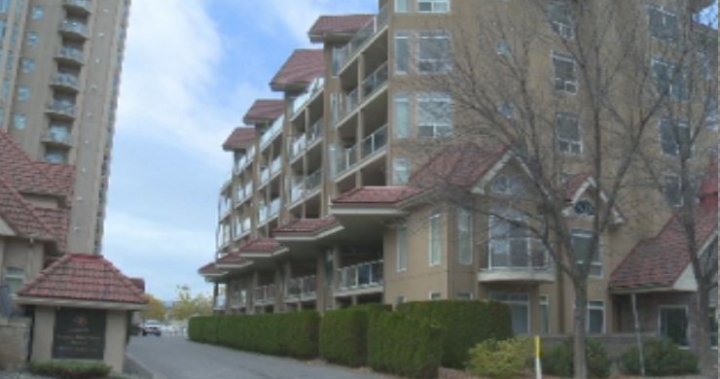The Nightmare on Scenic Drive: Kelowna Residents Grapple with Unruly Short-Term Rentals
The tranquility of Kelowna’s picturesque Upper Mission neighbourhood is under siege, not by natural disasters or urban sprawl, but by the disruptive presence of a short-term rental property. Residents like Dave Montpetit find themselves bracing for another season of unwelcome noise, parties, and inappropriate behavior spilling over from the neighboring house. The property, allegedly operating in violation of both municipal and provincial regulations, has become a source of constant frustration and anxiety for those living nearby.
The heart of the issue lies in the absentee ownership of the property. Regulations stipulate that short-term rentals must be the owner’s principal residence, a condition seemingly disregarded in this case. The owner’s absence has effectively shifted the burden of monitoring and enforcement onto the shoulders of the neighborhood residents. Montpetit laments the expectation that he and his neighbors document noise complaints, monitor the property’s activities, and essentially act as unpaid enforcers of bylaws. This involuntary role has placed an undue strain on the community, turning peaceful evenings into vigilant patrols and turning neighbors into reluctant adversaries.
The city’s enforcement efforts have been perceived as inadequate, further exacerbating the residents’ frustration. While acknowledging the challenges in regulating short-term rentals, the city’s response has been insufficient to address the ongoing issues. This perceived lack of action has left residents feeling abandoned and forced to bear the brunt of the problem. The hope now rests on a forthcoming provincial registry designed to streamline enforcement and hold non-compliant operators accountable.
A Glimmer of Hope: The Provincial Registry and the Promise of Accountability
The provincial government is poised to launch a new registry for short-term rentals, offering a glimmer of hope to beleaguered communities like the Upper Mission neighborhood. This registry, linked to the Ministry of Finance’s database on principal residences and investment properties, promises to provide a more effective mechanism for identifying and addressing violations. The Ministry of Housing and Municipal Affairs has indicated that the registry will require hosts to provide documentation proving their principal residency status.
The anticipated impact of the registry is significant. By connecting to financial data, the registry aims to eliminate the ambiguity surrounding principal residency claims, making it easier to pinpoint non-compliant operators. Moreover, the Ministry has stated that hosts found to be in violation will be barred from listing their properties on popular platforms like Airbnb and VRBO, effectively shutting down their operations. This decisive action holds the potential to finally bring relief to affected neighborhoods and deter future violations.
The city of Kelowna, acknowledging the limitations of its current enforcement capabilities, has welcomed the provincial initiative. Recognizing the detrimental impact of a few "bad actors" on the reputation of short-term rentals, the city views the registry as a crucial tool in addressing neighborhood disruptions and holding irresponsible operators accountable. For residents like Montpetit, the registry represents a long-awaited solution, offering a realistic path towards restoring peace and tranquility to their community.
The Countdown to Resolution: Residents Eagerly Await the Registry’s Launch
With the launch of the provincial registry imminent, anticipation is high among residents of the Upper Mission neighborhood. The registry is seen as the final piece of the puzzle, the tool that will empower authorities to effectively enforce regulations and bring an end to the ongoing nightmare. Montpetit expresses his fervent hope that the registry will be operational by spring, allowing the community to finally enjoy a peaceful summer free from the disruptions that have plagued them for too long.
The situation in Kelowna’s Upper Mission neighborhood underscores the broader challenges associated with the booming short-term rental market. While offering benefits to both property owners and tourists, the industry has also created unforeseen consequences for residential communities. The lack of effective regulation and enforcement has allowed some operators to flout the rules, creating friction and disrupting the lives of permanent residents.
The provincial registry represents a significant step towards addressing these challenges. By providing a centralized system for tracking and regulating short-term rentals, it aims to level the playing field and ensure that all operators adhere to the same standards. The registry’s success will depend on its effective implementation and enforcement, and its impact will be closely watched by communities across British Columbia grappling with similar issues.
The Future of Short-Term Rentals: Striking a Balance Between Tourism and Community Wellbeing
The case of the unruly short-term rental in Kelowna’s Upper Mission neighborhood serves as a microcosm of the larger debate surrounding the balance between the burgeoning short-term rental industry and the wellbeing of residential communities. The incident highlights the need for robust regulations, effective enforcement mechanisms, and ultimately, a greater sense of responsibility from both property owners and platforms facilitating short-term rentals.
As the sharing economy continues to evolve, it is crucial for governments and municipalities to adapt their regulatory frameworks to ensure that the benefits of short-term rentals are not achieved at the expense of community harmony. The provincial registry in British Columbia represents a promising step in this direction, offering a potential model for other jurisdictions seeking to address similar challenges.
The success of the registry will ultimately depend on its ability to create a fairer and more sustainable short-term rental market, one that respects the rights and needs of both residents and visitors. The coming months will be crucial in determining whether the registry can deliver on its promise and bring lasting peace to communities like the Upper Mission neighborhood, finally allowing residents to reclaim the tranquility that rightfully belongs to them.

